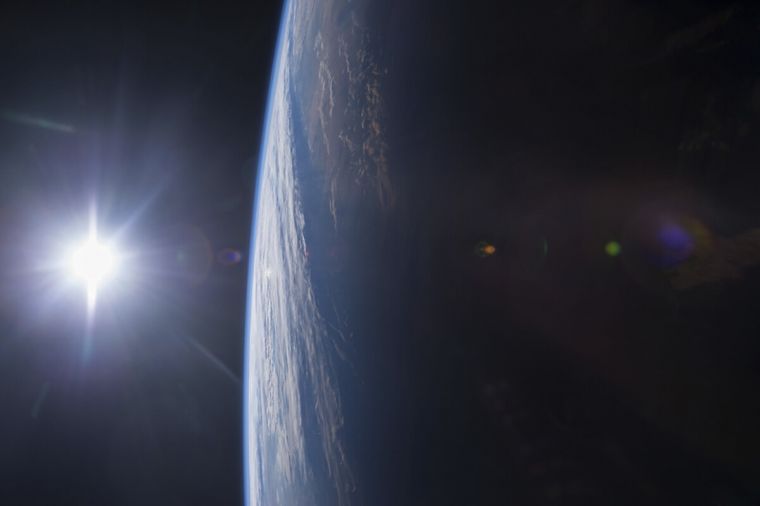Science and religion: What can we learn from Galileo?

Today marks the anniversary of the death in 1642 of Galileo Galilei (born 1564), the pioneering Italian astronomer, physicist and mathematician. His famous controversy with the Inquisition over whether the Earth moved round the Sun, or vice versa, has haunted relations between scientists and theologians ever since.
In popular mythology, the Catholic Church, behaving both foolishly and wickedly, tried Galileo for his opinions because they couldn't be squared with what the Bible said. Forced to recant under the threat of torture, he muttered under his breath: "Eppur si muove" – "and yet it moves".
Sadly, there's no proof that he said anything of the kind, though it's a good story.
There's enough truth in first part of the myth, though, for the Galileo case still to be rather embarrassing for the Catholic Church – and to be an object lesson for conservative Christians everywhere on how not to think about science.
Galileo was writing and teaching during the Renaissance, the tremendous flowering of scientific and artistic endeavour which bridged the mediaeval and modern periods. The Church was institutionally cautious about the new learning, particularly where it seemed to impact on its own territory. The "heliocentric" idea that the Earth went round the Sun had been known for ever since Copernicus advanced it in 1543, but the Inquisition had declared it heretical 1616. It was obvious that the Sun went round the Earth, and besides, the Bible said so.
The tide, of course, was running in favour of the scientific method. However, it is not entirely true to say that it was only the Church's obtuseness that resulted in Galileo's condemnation, which finally took place in 1633 (he was sentenced to house arrest in his pleasant villa, where he continued to work until the end of his life). There were genuine scientific arguments about what his data actually showed. While today we know he was right, the scholars of the day quite rightly probed the weaknesses of his arguments. Also highly relevant is the fact that Galileo had a knack for making enemies, both academic and ecclesiastical; he was even suspected of ridiculing Pope Urban VIII in one of his works.
Though Galileo had agreed in 1616 to abandon completely "the opinion that the Sun stands still at the center of the world and the Earth moves, and henceforth not to hold, teach, or defend it in any way whatever, either orally or in writing" and steadfastly maintained in 1633 that he had done so, it's clear that he knew exactly what his revolutionary telescope was showing him. Whatever the arguments he might have had with his fellow-scientists, however, it was the Church that scuppered him.
As early as 1615, a copy of a letter he had written was sent to the Inquistion by concerned citizens who wrote: "All our Fathers of the devout Convent of St. Mark feel that the letter contains many statements which seem presumptuous or suspect, as when it states that the words of Holy Scripture do not mean what they say; that in discussions about natural phenomena the authority of Scripture should rank last..."
When the Inquisition judged him in 1633 it said the idea that the Sun is stationary was "foolish and absurd in philosophy, and formally heretical since it explicitly contradicts in many places the sense of Holy Scripture..."
It took a long time for the Church to change its mind. However, in 1992 Pope John Paul II admitted: "The error of the theologians of the time, when they maintained the centrality of the Earth, was to think that our understanding of the physical world's structure was, in some way, imposed by the literal sense of Sacred Scripture...."
It's tempting to think that this is just an old story and that we can laugh at the simplicity of the believers of days gone by. However, Pope John Paul put his finger on an issue which for many Christians is still a live one. Do we have to let the Bible tell us how the physical world is made up, or can we work it out for ourselves?
For some Christians, the fact that the Bible says the world was made in six days places an absolute requirement on them to believe it. All the evidence from geology, astronomy, biology and archaeology that the world is much, much older than the 6,000 or so biblical years has to be discounted or reinterpreted. As the monks of St Mark's wrote to the Inquisition, suggesting otherwise is saying "that the words of Holy Scripture do not mean what they say" – and no matter what the evidence shows, they won't believe it. Galileo himself wrote in frustration to Kepler about scholars who refused even to look through his telescopes to avoid having to change their minds.
What the Galileo affair showed the Church – painfully and over quite a long time – was that if it tries to tell scientists their business it will end up looking ridiculous. There is a dialogue to be had between faith and science, and each can enrich and enlighten the other. But when theologians tell scientists that what they know perfectly well is true isn't true at all because the Bible says so, it is not very helpful.
Follow RevMarkWoods on Twitter.











